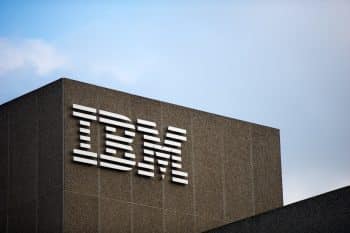Home » Employment News » New York City passes protections for food delivery drivers
New York City passes protections for food delivery drivers
https://www.whatjobs.com/news/employment-news/new-york-city-passes-protections-for-food-delivery-drivers

By Nagasunder in Employment News, posted September 27, 2021
New York City lawmakers enacted a package of laws aimed at improving working conditions and wages for app-based workers, making the city one of the first in the country to aggressively regulate the food delivery business, which is dominated by DoorDash Inc., Grubhub, and Uber Technologies Inc.
The comprehensive rules would force restaurant jobs to provide couriers with access to restrooms, set a minimum per-trip rate, guarantee that couriers receive complete tips, and allow workers to set restrictions on their routes. The apps will also be obliged to pay couriers at least once a week and provide payment options that do not require a bank account; they will not be allowed to charge workers fees to receive revenue.
The law is one of the most extensive initiatives in the United States to regulate the industry since the pandemic-induced surge in food delivery exposed vulnerabilities for eateries and workers who keep the apps running. Last month, the dichotomy became starkly apparent when Hurricane Ida's torrential rainfall caused catastrophic, fatal flooding across New York. Images of delivery workers working through the rain and not always getting higher pay sparked an uproar.
"Delivery workers have worked tirelessly throughout this pandemic, risking their lives, their livelihoods," said Councilwoman Carlina Rivera, a prime sponsor of the bills. "We all saw those photos of waist-deep water that they were wading through to bring people their food and medication."
During the COVID-19 pandemic, an estimated 65,000 food delivery drivers in New York City were declared vital workers. These workers, categorized as independent contractors, are not entitled to minimum wage or overtime benefits, prompting drive-by labor activists to strengthen protections during the last year.
However, a nationwide inspection of online platforms has increased. Chicago sued Grubhub, owned by Amsterdam-based Just Eat Takeaway.com, and DoorDash in August for "deceptive" pricing and the inclusion of eateries on apps without their authorization. California senators enacted legislation forcing food delivery firms to disclose third-party fees and commissions to clients, as well as how much restaurants make on their orders.
Delivery firms have begun to push back to protect their business models, which rely on contractors. The app-based enterprises have agreed to provide essential benefits and the flexibility of retaining contractors, but not full employee rights.
This dynamic was on display in California with Proposition 22, a $220 million voter initiative that provided drivers with certain advantages such as a healthcare stipend and a minimum salary. The gig economy in Massachusetts is supporting a similar endeavor.
After the cities put a permanent cap on the fees the platforms can charge eateries, DoorDash and Grubhub sued San Francisco, and UberEats joined the two in a lawsuit against New York, calling the measure "unconstitutional, damaging, and unnecessary." Thursday's new bills have a measure of support from at least some delivery companies, including Grubhub and DoorDash. Uber didn't respond to a request for comment.
"These bills are common-sense steps to support the delivery workers who work hard every day for New York's restaurants and residents," according to a statement from Grant Klinzman, a Grubhub spokesperson. "Ensuring they receive a living wage and have access to restrooms isn't just a good idea — it's the right thing to do."
As eateries closed around the city due to the COVID-19 outbreak, many unemployed New Yorkers turned to app-based delivery services, which grew in popularity. According to a Cornell University survey, 75% of delivery employees entered the sector after losing their jobs due to the pandemic.
According to a report undertaken by the Worker's Justice Project in collaboration with Cornell's School of Industrial and Labor Relations, the typical hourly wage for delivery workers in New York City after expenses is $7.94, excluding tips. Employees in New York are paid a minimum wage of $15 per hour. According to the findings, 65 percent of the delivery employees polled were denied entrance to a restaurant restroom.
Source: LATimes










